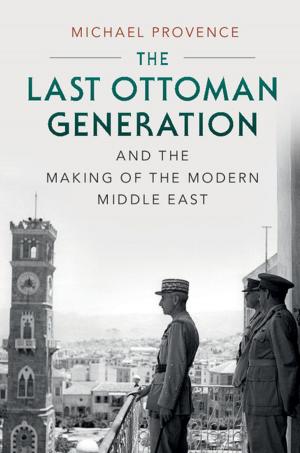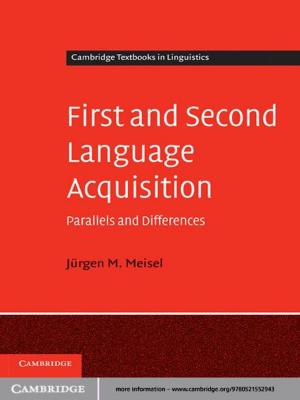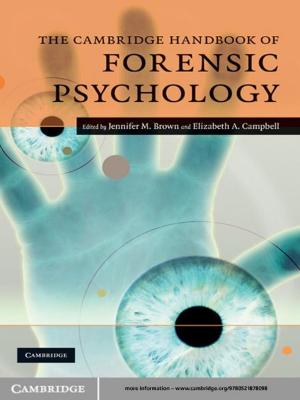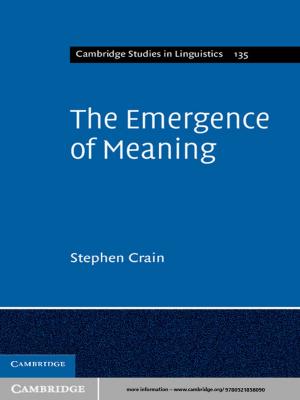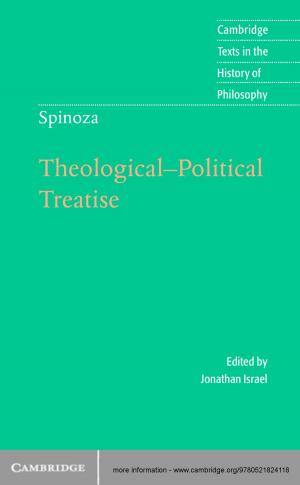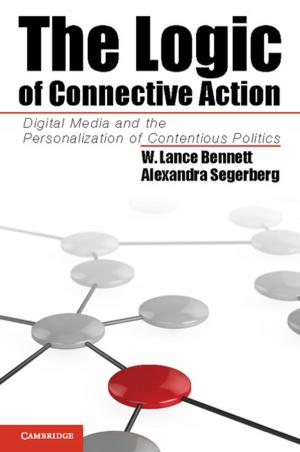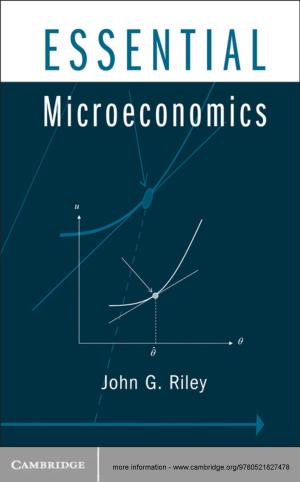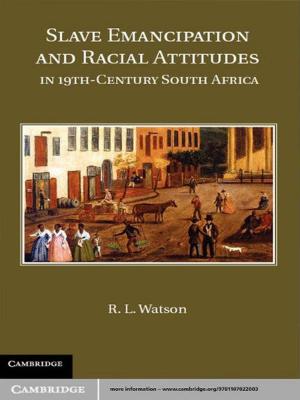Rosenzweig's Bible
Reinventing Scripture for Jewish Modernity
Nonfiction, Religion & Spirituality, Judaism, Philosophy| Author: | Mara H. Benjamin, PhD | ISBN: | 9780511738210 |
| Publisher: | Cambridge University Press | Publication: | March 2, 2009 |
| Imprint: | Cambridge University Press | Language: | English |
| Author: | Mara H. Benjamin, PhD |
| ISBN: | 9780511738210 |
| Publisher: | Cambridge University Press |
| Publication: | March 2, 2009 |
| Imprint: | Cambridge University Press |
| Language: | English |
Rosenzweig's Bible examines the high stakes, both theological and political, of Franz Rosenzweig's attempt to revivify the Hebrew Bible and use it as the basis for a Jewish textual identity. Mara Benjamin's innovative reading of The Star of Redemption places Rosenzweig's best-known work at the beginning of an intellectual trajectory that culminated in a monumental translation of the Bible, thus overturning fundamental assumptions that have long guided the appraisal of this titan of modern Jewish thought. She argues that Rosenzweig's response to modernity was paradoxical: he challenged his readers to encounter the biblical text as revelation, reinventing scripture – both the Bible itself and the very notion of a scriptural text – in order to invigorate Jewish intellectual and social life, but did so in a distinctly modern key, ultimately reinforcing the foundations of German-Jewish post-Enlightenment liberal thought. Rosenzweig's Bible illuminates the complex interactions that arise when modern readers engage the sacred texts of ancient religious traditions.
Rosenzweig's Bible examines the high stakes, both theological and political, of Franz Rosenzweig's attempt to revivify the Hebrew Bible and use it as the basis for a Jewish textual identity. Mara Benjamin's innovative reading of The Star of Redemption places Rosenzweig's best-known work at the beginning of an intellectual trajectory that culminated in a monumental translation of the Bible, thus overturning fundamental assumptions that have long guided the appraisal of this titan of modern Jewish thought. She argues that Rosenzweig's response to modernity was paradoxical: he challenged his readers to encounter the biblical text as revelation, reinventing scripture – both the Bible itself and the very notion of a scriptural text – in order to invigorate Jewish intellectual and social life, but did so in a distinctly modern key, ultimately reinforcing the foundations of German-Jewish post-Enlightenment liberal thought. Rosenzweig's Bible illuminates the complex interactions that arise when modern readers engage the sacred texts of ancient religious traditions.

